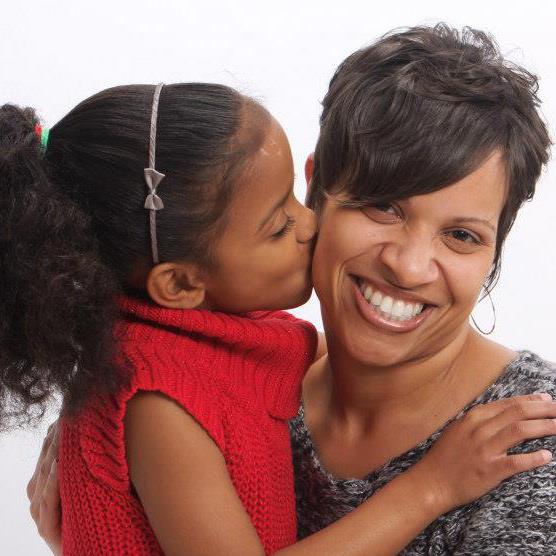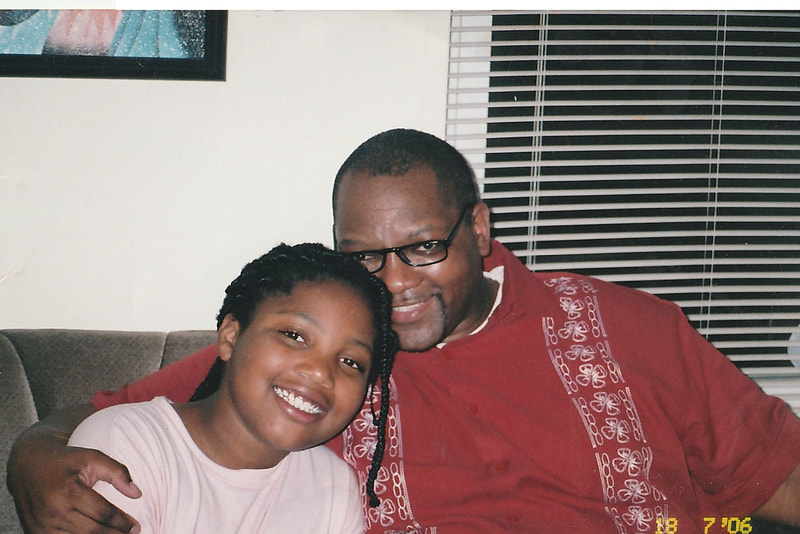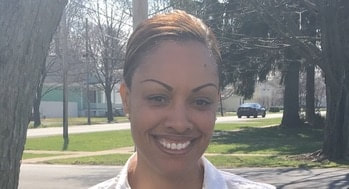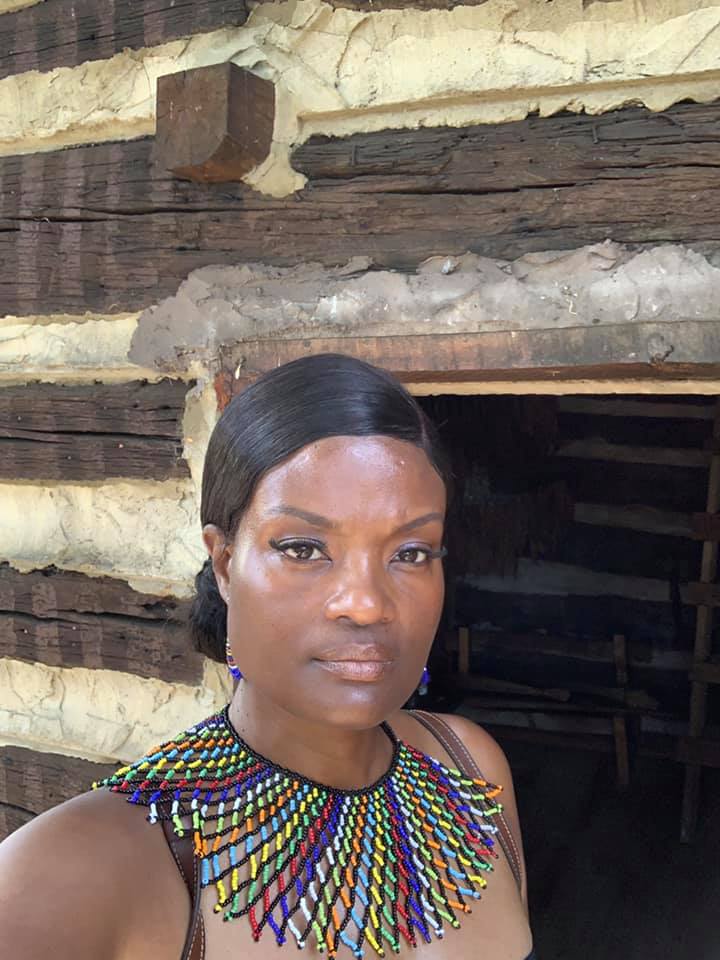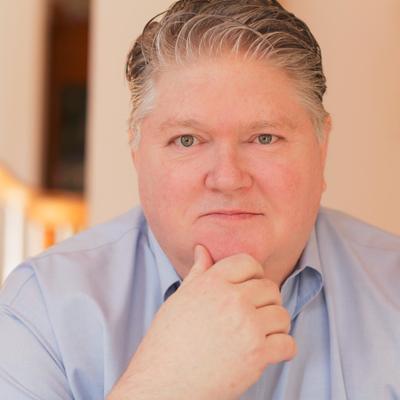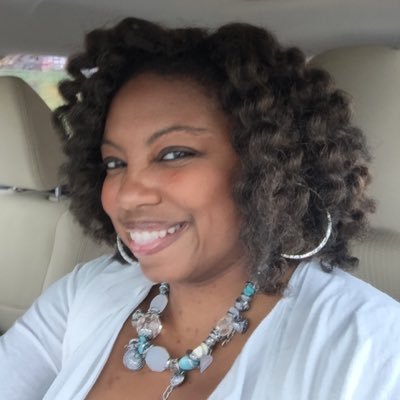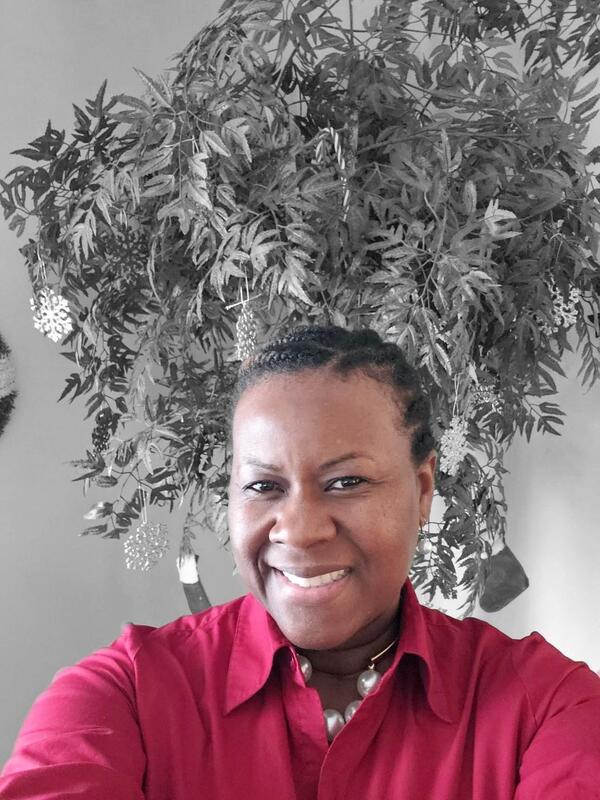Mental Health and Educational Experts Answer Parents' Question
How in-school trauma impacts students and teachers?
Parents ask: Can we discuss how in-school trauma impacts students and teachers?
Between grades 2-5 my child was and witnessed bullying while in school. The same boy bullied SEVERAL students during the four-year span. School officials, including the Central Office, did absolutely nothing to resolve the issue. The local Police Department was notified but did nothing claiming it was a school issue. In grades K-5 my child witnessed one fight. It occurred after school. The music teacher quickly broke up the minor scuffle. Once my child entered 6th grade, she witnessed multiple fights weekly, and at times several fights in one day. She saw evidence of fights— including blood on the hallway floors. Her school was placed on lock down a couple of times that year. One time included a former student coming to the school with a weapon. Some students made farewell calls to their parents. Others, including mine, sent a farewell text message. Let that sink in!!! Students were contacting their parents to say goodbye forever!!!
We later learned that the former student had a BB gun on him. A year later there’s still a discrepancy if the child made it into the school. Students say he did. School administration claims the former student did not enter the building. A year later the school is still having multiple fights weekly. A year later the school district has not made significant changes to help students at this school. Yet, we talk about student trauma not recognizing and/ or acknowledging that some student trauma occurs while children are in school. Going into a school building should not be a traumatizing experience for students and educators.
Between grades 2-5 my child was and witnessed bullying while in school. The same boy bullied SEVERAL students during the four-year span. School officials, including the Central Office, did absolutely nothing to resolve the issue. The local Police Department was notified but did nothing claiming it was a school issue. In grades K-5 my child witnessed one fight. It occurred after school. The music teacher quickly broke up the minor scuffle. Once my child entered 6th grade, she witnessed multiple fights weekly, and at times several fights in one day. She saw evidence of fights— including blood on the hallway floors. Her school was placed on lock down a couple of times that year. One time included a former student coming to the school with a weapon. Some students made farewell calls to their parents. Others, including mine, sent a farewell text message. Let that sink in!!! Students were contacting their parents to say goodbye forever!!!
We later learned that the former student had a BB gun on him. A year later there’s still a discrepancy if the child made it into the school. Students say he did. School administration claims the former student did not enter the building. A year later the school is still having multiple fights weekly. A year later the school district has not made significant changes to help students at this school. Yet, we talk about student trauma not recognizing and/ or acknowledging that some student trauma occurs while children are in school. Going into a school building should not be a traumatizing experience for students and educators.
Mental Health and Educational Experts Answer A Parent's Question
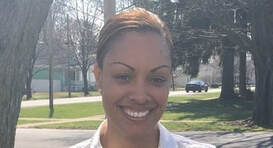 @ACCESSGlobalGrp
@ACCESSGlobalGrp
Dr. Shanelle R. Benson Reid (@ACCESSGlobalGrp): Dear Parents,
“If we truly want to change what’s happening in education, we cannot go it alone. Trauma in education is real: from fighting and bullying to suicide and mass shootings. As parents, we are waiting for school districts and administrators to address these issues and provide answers but our cries go unheard. It is time for us to create solutions. As parents, we need to connect and I don’t mean 4-5 parents. I mean all of the parents in the school and demand issues be addressed that will create safer spaces for our children. We can not do this alone. Small groups will not work. This will require a united effort!”
Bio: Dr. Shanelle R. Benson Reid, President and CEO of ACCESS Global Enterprises, LLC is a Consultant, Coach, Author and Professional Speaker. Her expertise is in areas of Education, Entrepreneurship, Leadership, Cultural Competency, Social Awareness and Community / Individual Empowerment. Dr. Benson Reid earned a Bachelor of Arts in Sociology from California State University, San Bernardino (CSUSB) and a Master of Arts in Education from CSUSB as well. Dr. Benson Reid earned her Doctorate from the University of La Verne in Organizational Leadership. Her dissertation is titled "A Case Study of the Historically, Successful Roles of African American Teachers, in Contemporary, Selected, Urban Charter School in New York." Dr. Benson Reid's personal motto is "inspire individuals to pursue self-examination, empower them to be innovative, progressive and revolutionary in thought and motivate them to be global activists.” Dr. Benson Reid's work is changing the landscape of society by empowering individuals, families and organizations. At ACCESS Global Enterprises, we encourage self-assessment and self-discovery while promoting innovative and progressive designs for change and implementing strategies for sustained success.
“If we truly want to change what’s happening in education, we cannot go it alone. Trauma in education is real: from fighting and bullying to suicide and mass shootings. As parents, we are waiting for school districts and administrators to address these issues and provide answers but our cries go unheard. It is time for us to create solutions. As parents, we need to connect and I don’t mean 4-5 parents. I mean all of the parents in the school and demand issues be addressed that will create safer spaces for our children. We can not do this alone. Small groups will not work. This will require a united effort!”
Bio: Dr. Shanelle R. Benson Reid, President and CEO of ACCESS Global Enterprises, LLC is a Consultant, Coach, Author and Professional Speaker. Her expertise is in areas of Education, Entrepreneurship, Leadership, Cultural Competency, Social Awareness and Community / Individual Empowerment. Dr. Benson Reid earned a Bachelor of Arts in Sociology from California State University, San Bernardino (CSUSB) and a Master of Arts in Education from CSUSB as well. Dr. Benson Reid earned her Doctorate from the University of La Verne in Organizational Leadership. Her dissertation is titled "A Case Study of the Historically, Successful Roles of African American Teachers, in Contemporary, Selected, Urban Charter School in New York." Dr. Benson Reid's personal motto is "inspire individuals to pursue self-examination, empower them to be innovative, progressive and revolutionary in thought and motivate them to be global activists.” Dr. Benson Reid's work is changing the landscape of society by empowering individuals, families and organizations. At ACCESS Global Enterprises, we encourage self-assessment and self-discovery while promoting innovative and progressive designs for change and implementing strategies for sustained success.
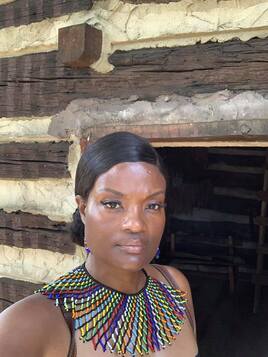
Dr. Renee L. Garraway: Dear Parents,
It is unfortunate that students or faculty experience trauma in places that are supposed to be safe and nurturing environments. Until policymakers and school district leaders place greater emphasis on social-emotional well-being and school-based mental health, the outcome for improving school climate looks bleak.
There needs to be more funding for interventions that focus on character education, peer mediation, mindfulness, professional development, etc. Students come from a variety of backgrounds and one cannot assume they automatically know how to effectively solve problems. Besides, parents and caretakers must provide opportunities for children to engage in positive interactions with their peers outside of school.
Promoting positive mental health and social skills needs to be seen as a necessity and a collaborative effort involving all Invested stakeholders. School-based leaders must cultivate a climate of respect, effective problem solving, and restorative practices to ensure that all stakeholders feel welcome and safe in the learning environment.
Bio: Renee L. Garraway, Ed.D., MA, MSW, LCSW-C has over 25 years of diverse work experience in clinical social work, special education, and school-based administration. She successfully defended her dissertation in March 2019 at Bowie State University. Dr. Garraway is currently serving as an adjunct professor, educational consultant, and early childhood mental health consultant. Her research interest is on the experiences of culturally and linguistically diverse students with disabilities; culturally responsive leadership; and cross-cultural competence in mental health. Her work has been accepted for presentations at national and international conferences as well as several books and journal publications. Dr. Garraway believes that her teaching, social work, and leadership experiences have provided fuel for her purpose and she is committed to ensuring that all students, regardless of race, socioeconomic status, or exceptional abilities.
It is unfortunate that students or faculty experience trauma in places that are supposed to be safe and nurturing environments. Until policymakers and school district leaders place greater emphasis on social-emotional well-being and school-based mental health, the outcome for improving school climate looks bleak.
There needs to be more funding for interventions that focus on character education, peer mediation, mindfulness, professional development, etc. Students come from a variety of backgrounds and one cannot assume they automatically know how to effectively solve problems. Besides, parents and caretakers must provide opportunities for children to engage in positive interactions with their peers outside of school.
Promoting positive mental health and social skills needs to be seen as a necessity and a collaborative effort involving all Invested stakeholders. School-based leaders must cultivate a climate of respect, effective problem solving, and restorative practices to ensure that all stakeholders feel welcome and safe in the learning environment.
Bio: Renee L. Garraway, Ed.D., MA, MSW, LCSW-C has over 25 years of diverse work experience in clinical social work, special education, and school-based administration. She successfully defended her dissertation in March 2019 at Bowie State University. Dr. Garraway is currently serving as an adjunct professor, educational consultant, and early childhood mental health consultant. Her research interest is on the experiences of culturally and linguistically diverse students with disabilities; culturally responsive leadership; and cross-cultural competence in mental health. Her work has been accepted for presentations at national and international conferences as well as several books and journal publications. Dr. Garraway believes that her teaching, social work, and leadership experiences have provided fuel for her purpose and she is committed to ensuring that all students, regardless of race, socioeconomic status, or exceptional abilities.
 Michael Hart
@drmichaelhart
Michael Hart
@drmichaelhart
Dr. Michael Hart (@drmichaelhart): Dear Parents,
It's a horrific tragedy. Beyond more funding for security, I believe they also need funding for anti-violence experts to work with both staff and the children. I'm quite sure the district doesn't think they have the additional funds for either of those. I wonder if the ACLU would take on a case like this. Kids have the civil right to feel safe in a government setting. Very, very painful to witness this all over the US.
Bio: Michael Hart, Ph.D. is a child psychologist with almost 30 years of experience in the diagnostic assessment and treatment of a full range of learning differences, including dyslexia and (AD/HD). He is the founder/owner of www.drmichaelhart.com and is currently providing webinars, online courses and onsite presentations/training for parents, educators and specialists regarding the proper educational care of our dyslexic students.
It's a horrific tragedy. Beyond more funding for security, I believe they also need funding for anti-violence experts to work with both staff and the children. I'm quite sure the district doesn't think they have the additional funds for either of those. I wonder if the ACLU would take on a case like this. Kids have the civil right to feel safe in a government setting. Very, very painful to witness this all over the US.
Bio: Michael Hart, Ph.D. is a child psychologist with almost 30 years of experience in the diagnostic assessment and treatment of a full range of learning differences, including dyslexia and (AD/HD). He is the founder/owner of www.drmichaelhart.com and is currently providing webinars, online courses and onsite presentations/training for parents, educators and specialists regarding the proper educational care of our dyslexic students.
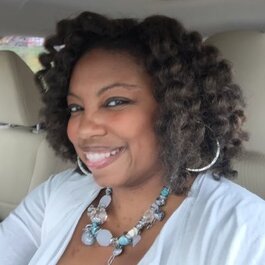 Dr. Marva Robinson
@drmarvarobinson
Dr. Marva Robinson
@drmarvarobinson
Dr. Marva Robinson (@drmarvarobinson): Dear Parents,
You are correct. I feel sorry for your daughter and the other students stuck in a toxic environment that’s meant to nurture. I would immediately invest in weekly to bi-weekly therapy for your child. That will address her more immediate angst.
To address the school environment, I would attend the school district meetings, which are open to the public and recorded. I would make a statement on the record regarding my concerns. I would gather as many additional parents who feel the same way and have them also go to the district meeting. You have the right to contact your local officials. You also have the right to contact the state board that certifies the school. Your child’s ability to flourish is being stunted. You have a right to call attention to it. No. The school should not be traumatizing and shame on the leadership that has failed you and your child.
Bio: Dr. Marva Robinson is the proud mother of one son, Preston, whom she credits as her biggest teacher. While she enjoys the moments of motherhood, she is passionate about her career as a psychologist. Working full time in her private practice, Dr. Robinson continues to work on addressing the challenges everyday children and families face.
You are correct. I feel sorry for your daughter and the other students stuck in a toxic environment that’s meant to nurture. I would immediately invest in weekly to bi-weekly therapy for your child. That will address her more immediate angst.
To address the school environment, I would attend the school district meetings, which are open to the public and recorded. I would make a statement on the record regarding my concerns. I would gather as many additional parents who feel the same way and have them also go to the district meeting. You have the right to contact your local officials. You also have the right to contact the state board that certifies the school. Your child’s ability to flourish is being stunted. You have a right to call attention to it. No. The school should not be traumatizing and shame on the leadership that has failed you and your child.
Bio: Dr. Marva Robinson is the proud mother of one son, Preston, whom she credits as her biggest teacher. While she enjoys the moments of motherhood, she is passionate about her career as a psychologist. Working full time in her private practice, Dr. Robinson continues to work on addressing the challenges everyday children and families face.
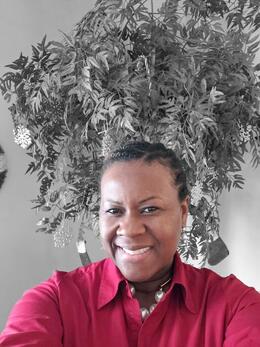 Dr. Kanteasa Rowell
@rowell_dr
Dr. Kanteasa Rowell
@rowell_dr
Dr. Kanteasa Rowell (@rowell_dr): Dear Parents,
Childhood trauma can have an immediate impact on any students’ ability to learn. Equally, trauma can affect an educator’s ability to function in a school setting. Research states that roughly 60% of students experience some form of emotional or physical trauma. The key to an individual’s success is the early detection and treatment of trauma.
Safe Schools initiatives are implemented in most school districts. Some districts are more active than others in the visible implementation of safe programs. School-based initiatives are facilitated at the school level. As a concerned parent, I would become involved in the active implementation of the initiatives and/or recommend additional measures to safeguard my child’s school and population. School-based counselors are very resourceful in identifying students who are targets, identifying the perpetrators, and in working to de-escalate the onset of bullying incidents to maintain safe schools.
Five Suggestions to Consider:
(1) Be involved at the school.
(2) Practice parent/child codes and strategies to respond to situations.
(3) Form Safe Parent Teams.
(4) Allow your voice to be heard and be consistent in your notifications of unsafe incidents.
(5) Seek a solution.
Bio: Dr. Rowell’s most rewarding title is Mother. She facilitates workshops and seminars that have been presented throughout the United States and abroad. Dr. Rowell is certified by the Professional Woman Network as a Save Our Youth and Diversity Trainer. She is experienced in facilitating workshops and seminars on the following topics, but not limited to: Organizational Leadership, Educational Leadership, Team Building, Struggling Teens, Parenting, Youth Leadership, Success, and Cultural Diversity. Dr. Rowell served as feature writer for Apopka My Town Magazine as the Parenting and Education Expert. Dr. Rowell has been recognized by the Manchester’s Who’s Who for Executive and Professional Women. Dr. Rowell’s knowledge and expertise is supported by 20 plus years of contractual experience with the State of Florida, Orange County Public Schools, School District of Hillsborough County, Premier Dekalb School, Palm Beach County School, Osceola County School, Marion County School District, and Wake County Public School System in instructional roles, administrative roles, and as curriculum matter expert. Dr. Rowell has held adjunct and professor positions with the University of Phoenix, Belhaven College, Grand Canyon University and Argosy University facilitating undergraduate, graduate, and doctoral courses in the College of Business and College of Education. Contact Dr. Kanteasa Rowell https://twitter.com/rowell_dr @rowell_dr
Childhood trauma can have an immediate impact on any students’ ability to learn. Equally, trauma can affect an educator’s ability to function in a school setting. Research states that roughly 60% of students experience some form of emotional or physical trauma. The key to an individual’s success is the early detection and treatment of trauma.
Safe Schools initiatives are implemented in most school districts. Some districts are more active than others in the visible implementation of safe programs. School-based initiatives are facilitated at the school level. As a concerned parent, I would become involved in the active implementation of the initiatives and/or recommend additional measures to safeguard my child’s school and population. School-based counselors are very resourceful in identifying students who are targets, identifying the perpetrators, and in working to de-escalate the onset of bullying incidents to maintain safe schools.
Five Suggestions to Consider:
(1) Be involved at the school.
(2) Practice parent/child codes and strategies to respond to situations.
(3) Form Safe Parent Teams.
(4) Allow your voice to be heard and be consistent in your notifications of unsafe incidents.
(5) Seek a solution.
Bio: Dr. Rowell’s most rewarding title is Mother. She facilitates workshops and seminars that have been presented throughout the United States and abroad. Dr. Rowell is certified by the Professional Woman Network as a Save Our Youth and Diversity Trainer. She is experienced in facilitating workshops and seminars on the following topics, but not limited to: Organizational Leadership, Educational Leadership, Team Building, Struggling Teens, Parenting, Youth Leadership, Success, and Cultural Diversity. Dr. Rowell served as feature writer for Apopka My Town Magazine as the Parenting and Education Expert. Dr. Rowell has been recognized by the Manchester’s Who’s Who for Executive and Professional Women. Dr. Rowell’s knowledge and expertise is supported by 20 plus years of contractual experience with the State of Florida, Orange County Public Schools, School District of Hillsborough County, Premier Dekalb School, Palm Beach County School, Osceola County School, Marion County School District, and Wake County Public School System in instructional roles, administrative roles, and as curriculum matter expert. Dr. Rowell has held adjunct and professor positions with the University of Phoenix, Belhaven College, Grand Canyon University and Argosy University facilitating undergraduate, graduate, and doctoral courses in the College of Business and College of Education. Contact Dr. Kanteasa Rowell https://twitter.com/rowell_dr @rowell_dr
